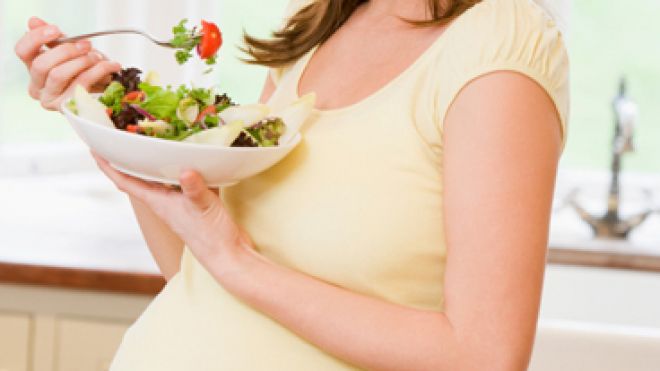The best pregnancy foods
When a woman is pregnant, we’re often quick to laugh off her cravings for even the unhealthiest foods. However, pregnancy is a time to indulge in nutritionally dense sources of delicious food - and avoid unhealthy foods, as often as possible. Processed foods offer little nutrition and may contain chemicals. Check labels and avoid products containing the following items: MSG, chemical additives, trans-fats, artificial dyes and anything in a plastic container that may contain BPA. Instead, look for organic and fresh foods whenever possible. When choosing proteins, look for options that come from animals that have not been given hormones or antibiotics. Foods rich in probiotics, healthy fats and folate are also all important components of a pregnancy diet. Probiotics are the building blocks for digestive health. Consuming probiotic-rich foods during pregnancy could help strengthen the immune systems of both the mother and baby. Probiotics can be easily incorporated into your diet through fermented foods such as kefir, organic plain yogurt, sauerkraut, kimchi and pickled vegetables. Healthy fats are vital to the baby’s brain, organ and tissue development, so embrace them. Butter from pastured cows and coconut oil both contain lauric acid, which has antiviral, antibacterial and immune supporting functions. Egg yolks contain choline which may enhance a baby’s brain development. Organic, full-fat dairy, avocado, nuts and healthy sources of meat all provide additional healthy fats. Wild-caught salmon, herring and sardines all contain healthy fats such as omega-3 and DHA. Wild, grass-fed animals like beef, wild boar, and longhorn are also great sources of omega-3’s. Folate is also critically important for the development of a healthy fetus. Dr. Luis Espaillat-Rijo, a voluntary assistant professor of obstetrics and gynecology at the University of Miami and clinical fellow at the Cleveland Clinic of Florida, stated that if he had to choose just one thing to recommend to pregnant women, it would be folate. Espaillat-Rijo explained that there is a direct link between folate supplementation and a decrease in incidence of neural tube defects. Folate also reduces the likelihood of anemia in the mother and can prevent early miscarriage and premature delivery. High quality, organic liver from a pastured animal is a great food to include in your diet once a week – it contains three times the amount of folate as a serving of raw spinach. Sunflower seeds, dark leafy greens and beans are also great sources of folate and make a wonderful addition to a pregnancy diet. This isn’t to say you can’t give in to your cravings. However, try to make your indulgences as healthy as possible.  If you’re craving a cheeseburger, choose grass-fed ground beef and organic cheese on a whole grain or sprouted bun. If all you want is a milkshake, seek out ice-cream made from hormone-free milk and top it with organic dark chocolate. Make the best choices you can, as often as you can. If you’re eating well the majority of the time, there’s no need to feel guilty about the occasional slip.Jacqueline Banks is a certified holistic health counselor and busy mother. & Her focus is on helping other busy moms in all stages of motherhood keep themselves and their little ones healthy and happy. & She uses natural and organic solutions to solve individual health problems and promote clean living. Check out her website at www.jbholistic.com.& & source : http://www.foxnews.com/health/2013/05/14/best-pregnancy-foods/
